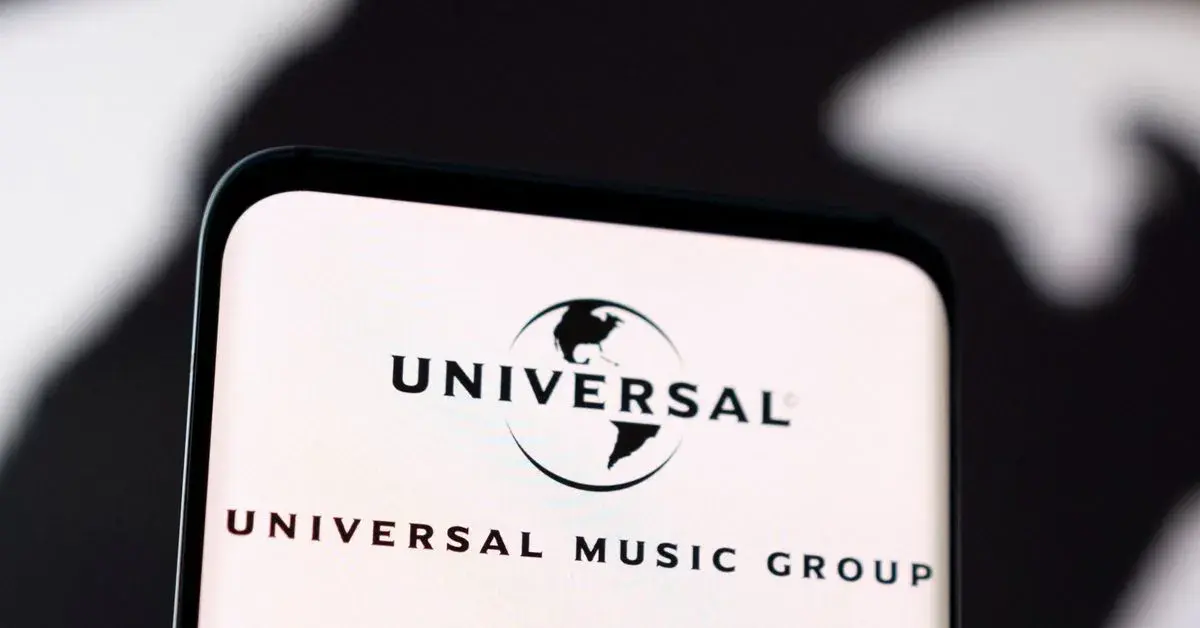- cross-posted to:
- datahoarder@lemmy.ml
- tech@kbin.social
- news@kbin.social
Archived version: https://archive.ph/ZGo6X
Universal Music Group (UMG.AS), Sony Music Entertainment (6758.T) and other record labels on Friday sued the nonprofit Internet Archive for copyright infringement over its streaming collection of digitized music from vintage records.
The labels’ lawsuit filed in a federal court in Manhattan said the Archive’s “Great 78 Project” functions as an “illegal record store” for songs by musicians including Frank Sinatra, Ella Fitzgerald, Miles Davis and Billie Holiday.
They named 2,749 sound-recording copyrights that the Archive allegedly infringed. The labels said their damages in the case could be as high as $412 million.
Representatives for the Internet Archive did not immediately respond to a request for comment on the complaint.
The San Francisco-based Internet Archive digitally archives websites, books, audio recordings and other materials. It compares itself to a library and says its mission is to “provide universal access to all knowledge.”
The Internet Archive is already facing another federal lawsuit in Manhattan from leading book publishers who said its digital-book lending program launched in the pandemic violates their copyrights. A judge ruled for the publishers in March, in a decision that the Archive plans to appeal.
The Great 78 Project encourages donations of 78-rpm records – the dominant record format from the early 1900s until the 1950s – for the group to digitize to “ensure the survival of these cultural materials for future generations to study and enjoy.” Its website says the collection includes more than 400,000 recordings.
The labels’ lawsuit said the project includes thousands of their copyright-protected recordings, including Bing Crosby’s “White Christmas,” Chuck Berry’s “Roll Over Beethoven” and Duke Ellington’s “It Don’t Mean a Thing (If It Ain’t Got That Swing)”.
The lawsuit said the recordings are all available on authorized streaming services and “face no danger of being lost, forgotten, or destroyed.”

Frank Sinatra, Ella Fitzgerald, Miles Davis and Billie Holiday.
all dead people

All musicians, sound engineers, even music execs at the time who made these records are dead or on death’s door.
This is just greed and it doesn’t have to be like this.

But think of the estates!

Songs of this vintage should be pirated out of principle IMO.
The artist has made their money from it and lived a good life - no record label should be able to line their pockets with the profits of a dead person’s work from my perspective.

More than that, these need to be in the public domain. This is our shared cultural heritage being held hostage, and 99.9% of it doesn’t even earn anyone anything at all.
Copyright should be 30 years. Long enough to extract any reasonable economic value from the work, but a time scale that gives balance to public benefit.

Copyright is supposed to encourage the creation of more content… how exactly are these artists going to produce more content? LMAO

Why can’t we have nice things? These people are literally just archiving and preserving old media, and if I recall correctly, they have strict rules of sharing these archived media.
I kinda understand why they got sued by Wiley/HarperCollins due to breaking the rules of sharing unlimited copies of archived books, but this time it doesn’t look like it.
Honestly, I hope Internet Archive survives all these lawsuits they’re dealing with

Because corporations rule the world

Also there are so many ways to get music I doubt people would be flocking to the internet archive for it.

Yeah, it doesn’t add up. Why would one go to the restricted access distributor if they can get a lot more by pirating?

I agree. I once forgot the book I was reading when I went on a trip, so I found it on internet archive for the time I was traveling. Reading a novel on there is just obnoxious, because they have short time limits for borrowing, which I forget if it’s an hour or half hour. Either way, it’s good for reference books, not so much for novels.

I don’t think the strict rules are true. Someone on Lemmy was asking about the legality of downloading music there because it was so easy to find. Maybe they are suing about the non-normalized versions that are not indexed as reserved.

If you attack the internet archive you clearly are scum

It is in our democratic interest to vote against copyright law.
So why do we choose to keep copyright law, at least in its current iteration?
Are we really not interested in either abolishing or changing it? Is your brother, mother, uncle, grandfather, neighbor and colleague in favor of current copyright law?

We’re not a democracy. the US government is 8 Million companies in a trenchcoat.

So why do we choose to keep copyright law, at least in its current iteration?
Are we really not interested in either abolishing or changing it? Is your brother, mother, uncle, grandfather, neighbor and colleague in favor of current copyright law?
They have less money to bribe the government with than large corporations do.

Copyright law is just a way for rich people to complain about theoretical money loss over art they didnt make.

“BuT mUh LoSt oPpOrTuNiTy CoSt”
There will eventually be a tipping point for this IMO, just wait until something so egregious happens that it affects normal people.
Or are people going to continue taking all of this and doing nothing…

The law locks up the man or woman Who steals the goose off the common But leaves the greater villain loose Who steals the common from the goose. The law demands that we atone When we take things we do not own But leaves the lords and ladies fine Who takes things that are yours and mine. The poor and wretched don’t escape If they conspire the law to break; This must be so but they endure Those who conspire to make the law. The law locks up the man or woman Who steals the goose from off the common And geese will still a common lack Till they go and steal it back.https://www.onthecommons.org/magazine/“stealing-common-goose”/

If you have exactly the right flavour of British accent, “endure” and “law” almost rhyme.

I’ve said it many times: I think that copyright for all published art should extend for exactly one year after it’s publication then become public domain. For almost ALL media, the first year is the time in which it make over 90% of its money. If you haven’t turned a profit, or at least broken even, by then then you aren’t going to.
After tjay I don’t see why you should be entitles to royalties from every sale, especially with our modern system of mass distribution.

One year is way too short. IMO, twenty years would be perfect.
And I’m not sure if that’s already a thing, but what enters the public domain has to be made freely accessible (de-DRMed, open-sourced…).

Saw panel with somebody suggesting eg you set your price of art at a level, after which your art goes creative commons and you get paid.

Sounds like archive.org needs to move to the dark web?

They require too much funding for storage, contracting professional archivists, and retaining legal counsel to try and go anonymous and dark. There are other smaller groups filling those roles too (one of the datahoarder community’s mods runs an archival group that’s better protected in that way), and I’d imagine the overlap in contributors is not insignificant.

FCK Copyright!

The US copywrite system is fucked beyond measure. They should realy be based out of a different country.
This is the best summary I could come up with:
The labels’ lawsuit filed in a federal court in Manhattan said the Archive’s “Great 78 Project” functions as an “illegal record store” for songs by musicians including Frank Sinatra, Ella Fitzgerald, Miles Davis and Billie Holiday.
Representatives for the Internet Archive did not immediately respond to a request for comment on the complaint.
The Internet Archive is already facing another federal lawsuit in Manhattan from leading book publishers who said its digital-book lending program launched in the pandemic violates their copyrights.
A judge ruled for the publishers in March, in a decision that the Archive plans to appeal.
The labels’ lawsuit said the project includes thousands of their copyright-protected recordings, including Bing Crosby’s “White Christmas,” Chuck Berry’s “Roll Over Beethoven” and Duke Ellington’s “It Don’t Mean a Thing (If It Ain’t Got That Swing)”.
The lawsuit said the recordings are all available on authorized streaming services and “face no danger of being lost, forgotten, or destroyed.”
I’m a bot and I’m open source!

The lawsuit said the recordings are all available on authorized streaming services and “face no danger of being lost, forgotten, or destroyed.”
They face no danger until they do. Music in streaming platforms is always one corporate drama or profit-driven decision away from being removed. Netflix, anyone?

Isn’t there currently a huge shit fight about Disney+ removing shows that aren’t available anywhere else and will never be released on physical media too?

I sincerely hope people are organizing to back this all up – datahoarders unite! These days it’s affordable to dedicate an 8TB disk to back up as much of these as possible… anyone have any tips on bulk-downloading the individual 78s from archive.org?
Edit: I found this tool, get archiving, people
https://github.com/jjjake/internetarchive
Example:
ia download -a -i --format=“VBR MP3” --search collection:georgeblood
EDIT #2: I’ve submitted a patch adding options to specify start and end item indices, so one can more easily download parts of a collection and resume later – or coordinate with others so each can download non-overlapping parts of a huge collection, and put them together later. See this PR

